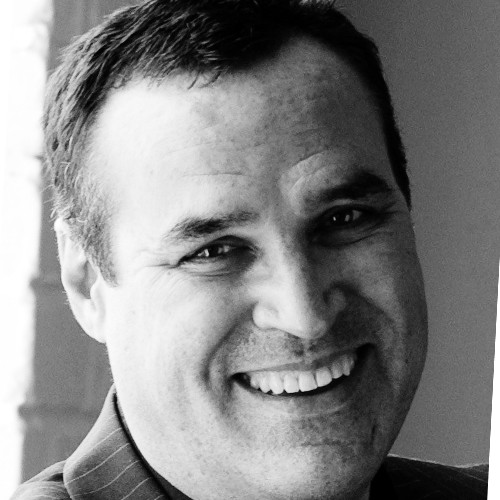Effective Backup Plans Part II: The 3 Indispensable Components
Reasonable Doubt
With David Lesperance
A contrarian expert on contingency plans for the wealthy delivers uncomfortable truths.
This is the second installment of a two-part series. Read the first installment here: Effective Backup Plans Part 1: Back to Basics
An effective Backup Plan includes the following components:
- Alternative Citizenship(s);
- Alternative Residence(s); and
- International Access to Wealth.
Component 1: Alternative Citizenships
When developing this first part of a Backup Plan, it is important to determine upfront whether the family’s current citizenship recognizes the concept of “dual citizenship”. Many countries – such as the US, Canada, and the UK – legally recognize the right of their citizens to retain or acquire additional citizenships. Other countries, however, such as China, India, and the GCC nations, either do not allow or significantly restrict dual citizenship. In these cases, special care and protocols in the acquisition and maintenance of alternative citizenships are essential.
Citizenship is granted pursuant to the domestic law of the country granting that citizenship. Many countries incorporate one or both of the legal concepts of Jus Sanguinis or Jus Soli. Jus Sanguinis (Latin for right of blood) is a principle of nationality law by which citizenship is determined not by place of birth but by having one or both parents or grandparents who are citizens of the state. Jus Soli (Latin for right of the soil) is commonly referred to as “birthright citizenship”. It is the right of anyone born in the territory of a state to nationality or citizenship.
In addition, many countries also incorporate into their domestic nationality laws a method for an individual to “earn” citizenship through naturalization. Naturalization laws can take many forms and can include the following:
- Meeting certain religious criteria: e.g. Israel’s Law of Return;
- Meeting certain physical presence, tax residence, language, and local knowledge criteria, i.e. traditional naturalization in western countries;
- Citizenship by investment: The traditional naturalization requirements are waived where specific economic contributions are made; and
- General Authority: In many countries, the power to grant citizenship is granted to some government office or body based on their own criteria. This might be a contribution to the state in sports, humanities, art, economic benefit, etc.
When developing a robust citizenship component of a Backup Plan, it is essential that an in-depth examination of the family history be undertaken. If possible, the family history should go back at least to the great-grandparents of the current oldest family members. In certain situations (e.g. Sephardic Jewish claims to Portuguese citizenship), certain surviving family or cultural indicators are looked at to establish a more distant claim.
Generally speaking, lineage citizenships that can be acquired through family or religious means are from large, developed countries. These countries often offer excellent rights such as visa-free travel, the right to live throughout the EU, and credibility. Too often, families who have not stayed current with the ever-changing legal landscape in this area wrongly assume they are ineligible for lineage citizenship. As a result, they overlook this avenue while simultaneously reading in the press or on-line about countries that sell citizenship. Consequently, they may end up unnecessarily wasting hundreds of thousands of dollars on a citizenship by investment program, rather than spending a fraction of this amount on professional advice to explore their potential claim through lineage.
Component 2: Alternative Homes and Business Locations
As noted in Rules #1 and #2 of the first part of this series, when choosing the right alternative home or homes, an effective Backup Plan must consider all the essential financial and family requirements. But sometimes, there are added benefits. For example, these alternative residences might also give some family members the ability to relocate temporarily or permanently for educational or career opportunities.
One key point worth noting is that alternative homes should “Do No Harm” to the family’s tax position. The family’s advisors must examine the tax ramifications (and opportunities) that would arise should all or some of the family decide to make this location their new “tax home”. This includes legal pre-immigration tax planning and assessment of any tax treaties with the family’s current tax jurisdiction. Consideration also needs to be given as to the “physical presence cost” of each alternative residence.
Finally, the future ability to convert residence status into citizenship through naturalisation is an important feature to consider and plan for if citizenship is of interest.
Component 3: International Access to Wealth
Having your family safe in an alternative residence but not having the financial means to maintain them or your business is far from ideal. The only thing worse would be that your assets are safe, but you and your family are in danger or trapped.
To avoid both of these situations, the family’s financial advisors must ensure that appropriate alternative financial resources are available for the family’s use if needed. It is worth noting that the location of these alternative resources does not necessarily need to be in the same jurisdictions as the family’s alternative residences. In fact, given tax and privacy issues, they often should not be in the same jurisdiction.
Given the significant amount of time required these days to complete a new financial institution’s “Know Your Client” process, it is definitely worthwhile to establish these new relationships outside of the home jurisdiction at the same time as the citizenship and residence elements are being put into place. In that way, any delay is avoided should there be a sudden requirement to move the bulk of the family wealth out of the home country.
In closing, in today’s world of rapidly rising threats to family wealth, well-being, and mobility, a properly designed and sustainable Backup Plan could well be the difference between future happiness and misery.
David Lesperance is a global leader of international tax and immigration advisors.
A published author in the field, his personal interest in these areas of law grew from his experience working as Canadian immigration and customs officer while studying law. Since being called to the bar in 1990, he has established his expertise with major law firms, his own law firm and as a private consultant. David has successfully advised scores of high and ultra high net-worth individuals and their families, many of whom continue to seek his counsel today. In addition he has provided pro bono advice to many governments on how to improve their Citizenship by Investment, Residence by Investment or Golden Visa type programs to better meet the needs of his global clients. David is supported by a team of professionals, some of whom have worked with him since the early 1990s.




